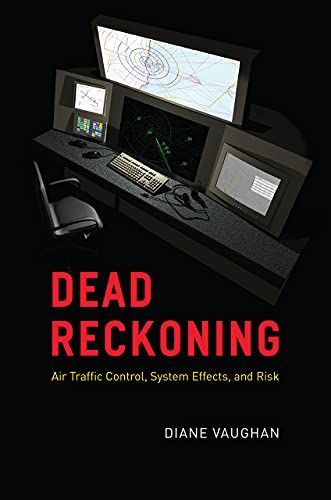
Dead Reckoning Air Traffic Control, System Effects, and Risk
"When two airplanes were flown into the World Trade Center towers on September 11, 2001, Americans watched in uncomprehending shock as first responders struggled to react to the situation on the ground. Another remarkable and heroic feat was taking place in the air: more than 550 air traffic control centers across the country coordinated their efforts to ground 4,000 flights in just two hours--an achievement all the more impressive considering the unprecedented nature of the task. In Dead Reckoning, Diane Vaughan explores the complex work of air traffic controllers--work that is built upon a close relationship between human organizational systems and technology and is remarkably safe given the high level of risk. Vaughan observed the distinct skill sets of air traffic controllers--from1998 to today--and the ways their workplaces changed to adapt to technological developments and public and political pressures. She chronicles the ways these forces affected their jobs, from their relationships with one another and the layouts of their offices, to their understandings of their job and its place in society. To fully understand the dynamic interplay of these forces, Vaughan traces the profession to its origins, uncovering how it has incorporated new technologies and adapted organizational practices in dead reckoning, the process of deducing the future position of an object in space. Vaughan shows how technological development changes all workplaces; every organization must use dead reckoning to predict their future place in our ever-changing social space"--